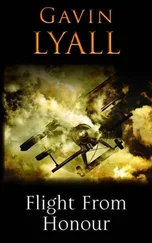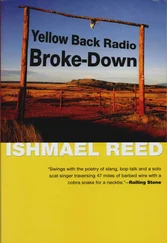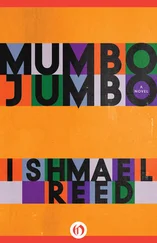He began to rub her neck.
She sighed. “That’s nice.”
“Did you hear what the runner up from Mississippi said?”
“What, Robin?”
“Say he saw Quickskill’s picture in the newspaper way down there.”
“Was it a personal runaway ad that old man Swille put in there?”
“No, it was something about a poem of his.”
“Oh, that must have been the poem I heard Cato discussing with Swille. All about him coming back here. I didn’t see him come back. Did you hear anything from the fields?”
“Nobody seen him here.”
“Say Ms. Swille showed him the combination to her safe.”
“That Quickskill. Boy, he was something.”
They both laugh.
“Remember that time, Judy, when he complained to Massa Swille that Mammy Barracuda would always serve his dinner cold and put leftovers in his meal?”
“Sometimes she wouldn’t even put silverware out for Raven.”
“She didn’t like it because he was Swille’s private secretary and sat at the table with the family.”
“She didn’t like anyone to come between her and Arthur, as she calls him.”
Aunt Judy turns to him and puts her arms around his neck, their abdomens, thighs, touching, her cheek brushing against his as she places the champagne glass on the table next to the bed.
“Want some more?”
“I’ll be drunk, Robin. I have to get up tomorrow at six and get breakfast.”
“One more. For the Emancipation.”
“Won’t do us any good. He freed the slaves in the regions of the country he doesn’t have control over, and in those he does have control over, the slaves are still slaves. I’ll never understand politics.”
Robin is sitting up, the covers down to his naked waist. He picks up the champagne bottle and pours.
“That’s Lincoln playing. Lincoln is a player. The Emperor of France’s secretary called up here and told Swille not to show up to that party for the royal people next week. Swille tried to get through to the Emperor, but the secretary refused, and when Swille called the Emperor by his first name, the secretary said to Swille, ‘Don’t you slave peddler ever be calling him that again,’ and hung up, in French.” They laugh. “Is Ms. Swille still on her strike?”
“Is she! Today she called me and Bangalang her sisters and said something about all of us being in the same predicament. Me and Bangalang just looked at each other.”
“She used to be so beautiful.”
“Wasn’t she so! The belle of the Charity Ball. Horse rider. Miss Mississippi for 1850, same time Arthur got his award.”
“When do you think they’re going to tell her about her son?”
“You mean how he got eat — Oh, that reminds me. I mean to tell you. Speaking of the dead. Well, Bangalang told us today that one of the children was out in the cemetery and they wandered into the crypt where that old hateful Vivian, Arthur’s sister, is, and that the child saw …”
“What … what she see?”
“As she said, she heard somebody talking and he went inside, and the child saw Massa Swille and the man had done taken off the lid from the crypt and was on top of his sister and was crying and sobbing, and that he was sweating and that he was making so much noise that he didn’t even notice the child and the child run away, and the child say he saw Vivian’s decomposed hand clinging to his neck.”
“That kid’s got to be telling a fib, Judy. I told you about letting those children play in the cemetery.”
“But, Robin, ain’t nothin in there but dead folks.”
A low moan of a solitary wolf can be heard.
“Oh, there go that wolf again. I hope he’s not out there all night again. Judy … Judy?”
Robin turns over and sees that his wife is asleep. They are back to back.
RAVEN QUICKSKILL WAS SITTING in a house with black shutters on Free Street in Emancipation City. It is an eighteenth-century schoolhouse he is “watching” for a few months. The owners, Sympathizers to the Cause, had left for a resort in another state, and knowing that he was a “fuge,” as a person of his predicament was called, had asked him to watch it. That’s the way it was in the fugitive life. Minding things for Abolitionists and Sympathizers to the Cause. They had left some plants, which he tended. And some cats. He was sitting in a rocker, reading a book about Canada, about the plentiful supply of gasoline, the cheap, clean hotel rooms that could be had in Toronto and Montreal; the colorful Eskimo sculpture that could be bought in the marketplace; the restaurants specializing in lobster; the scuba diving, the deep-sea fishing.
There was a knock at the door. He opened it on two men. They were dressed in blazers and wore grey slacks, black cordovans. They were very neat. One was medium-sized, the other, squat, short. The short one was carrying a briefcase.
“Mr. Quickskill?” the man with the briefcase asked.
“That’s me.”
“We have orders to repossess you,” said the medium-sized one. He sneezed. Removed a handkerchief and blew his nose.
Quickskill was thinking. It was three years since they had sent him a bill. He’d been moving ever since. They’d found him.
“Here’s my card,” the medium-sized man said, sneezing again.
“Have a cold?” Quickskill asked, reading the card. The card said NEBRASKA TRACERS, INC. “I have some vitamin C in the cabinet.”
“Hey, Harold,” the man with the briefcase said, “that might help. Vitamin C.”
“Would you gentlemen come in,” Quickskill said, escorting them into the room of Shaker furniture. They walked across the waxed hardwood floors and sat down. “Can I offer you something?” he asked, cool.
“No,” they said.
Quickskill clasped his hands on a knee, lifting his feet off the floor a bit. “Now, you gentlemen said that you were going to repossess me.”
“Your lease on yourself has come to an end. You are overdue. According to our information, Mr. Swille owns you,” the short one said, reaching into his briefcase. “Here’s the bill of sale. You see, Mr. Swille sees you as a bargain. Bookkeeper, lecturer, an investment that paid off. He’s anxious to get you back, and since there are a lot of invoices and new shipments piling up, he says a man of your ability is indispensable.”
“Uncle Robin is performing that function now. He needs Uncle Robin in the house. Robin’s overextending himself,” the medium one said. “He’s reading and writing now. Seems to have begun to assess his condition. One of the white house slaves, Moe, reported that the old codger had taken to philosophizing. Swille says he’s concluded that the missing invoices and forged papers will be ignored. He blames the whole thing on your misled humanitarian impulses.”
“And if I don’t want to return to Virginia, then what?”
“We’ll have no choice but to foreclose,” the short one said.
“Look,” the medium one said, “I hate doing this but … but it’s the law.”
“Even Mr. Lincoln said that what a man does with his property is his own affair,” said the short one.
“Yeah, Lincoln,” murmured Quickskill.
“What?”
“Oh, nothing.”
“You’re lucky, if you ask me. Why, that poem you wrote …” the short one said.
“How did you know?” It had been nearly three winters since Beulahland Review promised to publish it. Maybe Swille owned Beulahland too.
“Mr. Swille gave us a copy. You know, if we weren’t his employees, we’d circulate it ourselves,” the short one said.
“Regardless of the copyright?” the medium one asked.
“Oh, I forgot. That’s the law. We must obey the law, though he doesn’t come within the framework of Anglo-Saxon law. Justice Taney said that a slave has no rights that a white man is bound to respect.”
Читать дальше












